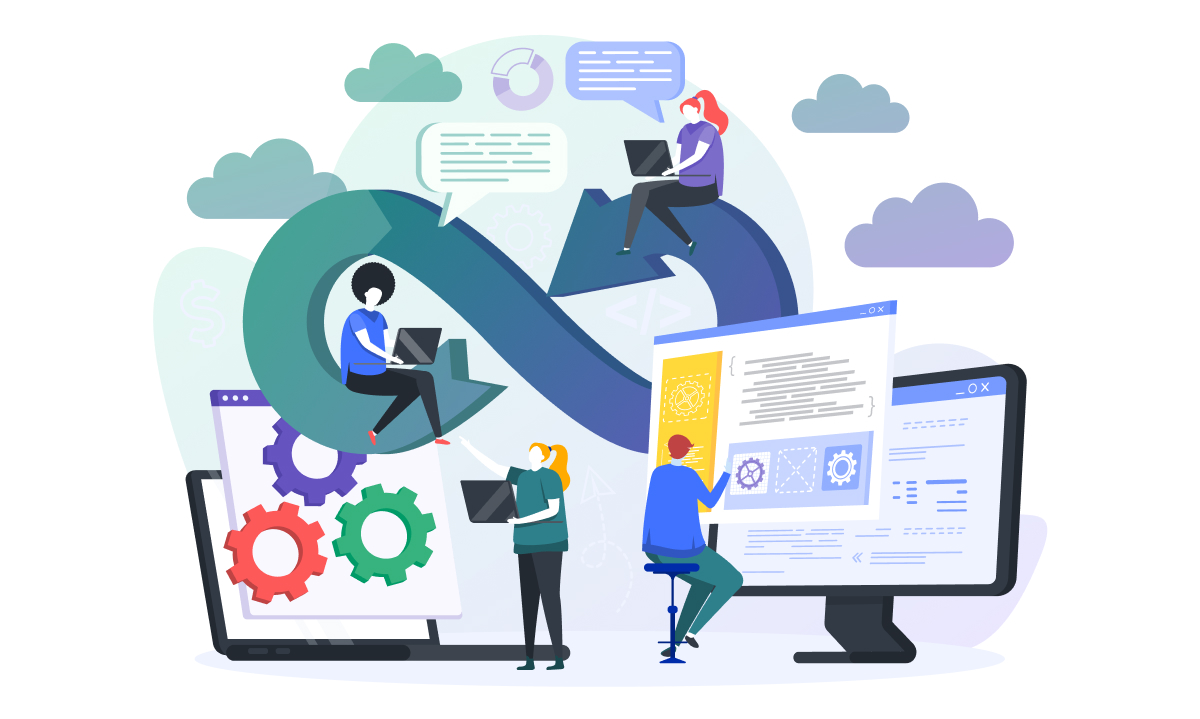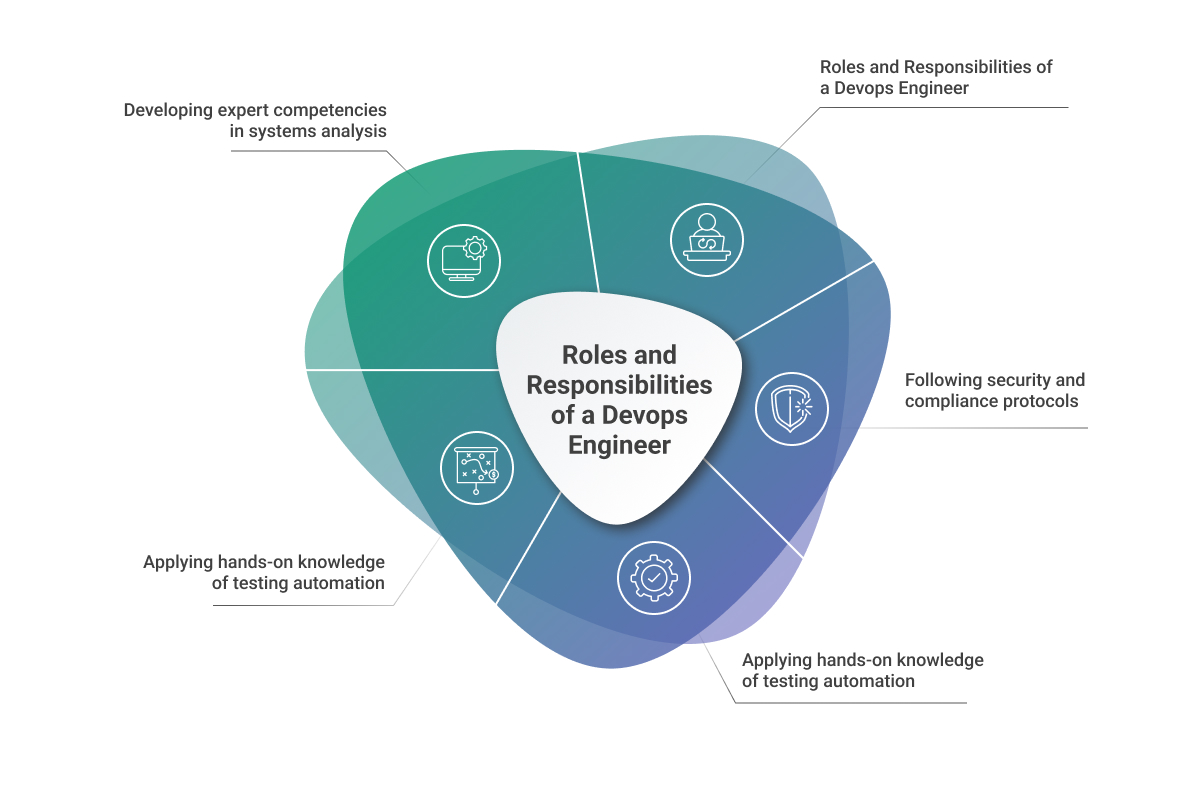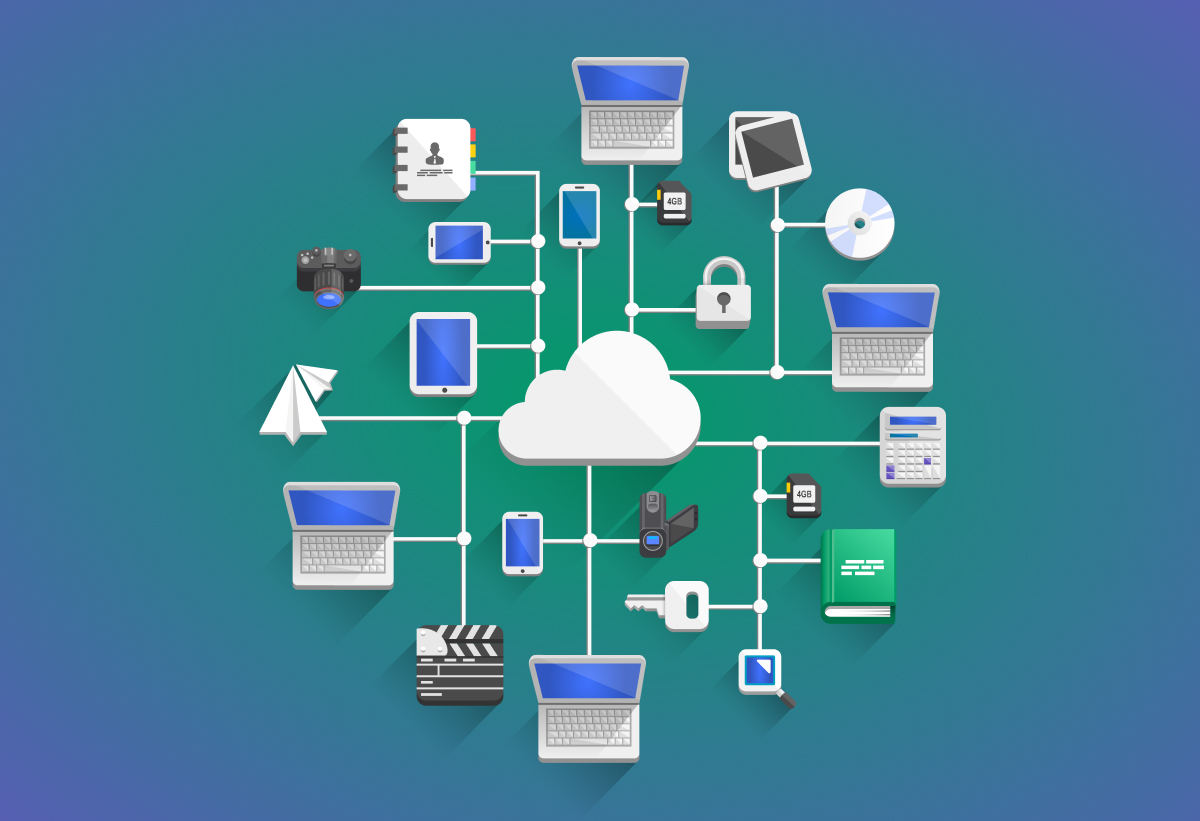In a world where software development and IT operations are intertwined like never before, the role of DevOps engineers has become increasingly crucial. These skilled professionals are the unsung heroes who seamlessly integrate the worlds of development and operations, fostering a culture of collaboration and enabling the continuous delivery of cutting-edge software solutions.
By harnessing the power of automation, streamlining processes, and leveraging the latest tools and technologies, DevOps engineers empower organizations to stay ahead of the curve in an ever-evolving market.
As companies recognize the immense value that DevOps brings to the table, the demand for top-tier DevOps talent has skyrocketed.
Hiring the right DevOps professionals can be a game-changer, unlocking the full potential of an organization's technology stack and propelling them to new heights of innovation and efficiency. However, with the fierce competition for these sought-after individuals, it's essential to have a well-defined strategy in place to attract and retain the best DevOps talent.

To shed light on this critical topic, we reached out to our experienced recruiters, who possess a wealth of knowledge and expertise in the field of DevOps hiring. In the following article, they will share valuable insights, tips, and best practices for identifying, attracting, and hiring the right DevOps talent in a highly competitive market.
Get ready to dive into the world of DevOps recruitment and discover how to build a world-class team that will drive your organization's success to new frontiers.
Understanding the Role of a DevOps Engineer
A DevOps engineer is a versatile professional who combines technical expertise with a deep understanding of the software development lifecycle. Their primary responsibilities include:
- Automating processes and workflows to reduce manual effort and minimize errors
- Managing and optimizing infrastructure to ensure scalability and reliability
- Facilitating collaboration and communication between development and operations teams
- Implementing and maintaining continuous integration and continuous deployment (CI/CD) pipelines
- Monitoring and troubleshooting production environments to ensure smooth operations
To better understand the key skills and competencies needed for a good DevOps engineer, our recruiters shared what they look for when hiring for DevOps and Cloud roles.
Our recruiters agree that they must ask the right questions during the initial stage of the hiring process. It is imperative for them to understand the candidate’s experience and the devops candidate's understanding of the type of project they would be working on.
Our IT recruiters use their time with the candidate to check if they have prior expertise in cloud platforms like AWS/Azure, CI/CD tools, scripting experience, containerization (Docker/Kubernetes), infrastructure as code (Terraform), and strong problem-solving abilities. Beyond technical skills, also they check the candidates’ communication and collaboration styles to make sure they are a great team fit.

For hiring DevOps at Softjourn, our recruiters outlined these essential skills and competencies of a DevOps engineer:
- Proficiency in automation tools like Ansible, Puppet, and Chef.
- Experience with cloud platforms like AWS, Azure or Google Cloud.
- Knowledge of containerization technologies like Docker and Kubernetes.
- Familiarity with monitoring and logging tools like Prometheus, Grafana, and ELK stack.
- Some background in incident management and security tools.
- Programming skills in languages like Python and/or Ruby.
DevOps In-House vs Third-Party
When implementing DevOps practices within an organization, businesses have two main options: hiring an in-house DevOps team or partnering with a third-party software development provider. Each approach has its advantages and disadvantages. Let's explore the pros and cons of both options:
Hiring In-House DevOps Team
Pros:
Direct control and ownership: With an in-house DevOps team, you have complete control over the team's priorities, processes, and workflows. This allows for better alignment with your organization's goals and culture.
Intellectual property protection: Keeping DevOps in-house ensures that your proprietary information, trade secrets, and sensitive data remain within your organization, reducing the risk of intellectual property leakage.
Cons:
Higher costs: Building and maintaining an in-house DevOps team can be expensive. It involves recruitment, salaries, benefits, training, and infrastructure costs, which can strain your budget.
Limited talent pool: Finding and attracting skilled DevOps professionals can be challenging, especially in a competitive job market. You may need help hiring experienced DevOps engineers with the suitable skill set.
Partnering with a Third-Party Software Development Provider
Pros:
Access to expertise and best practices: Third-party providers often have a team of experienced DevOps professionals who bring a wealth of knowledge and best practices from working with various clients and industries.
Scalability and flexibility: Partnering with a provider allows you to scale your DevOps capabilities up or down based on your project requirements. You can leverage their resources and expertise as needed without the long-term commitment of hiring permanent staff.
Cost-effectiveness: Outsourcing DevOps can be more cost-effective than building an in-house team, as you can avoid the overhead costs associated with hiring, training, and maintaining a full-time DevOps team.
Cons:
Communication and collaboration challenges: Working with an external provider may introduce communication and collaboration challenges due to differences in time zones, language barriers, or cultural differences.
Limited control and visibility: When outsourcing DevOps, you may have less direct control over the day-to-day operations and decision-making process. Ensuring transparency and maintaining visibility into the provider's work can be challenging.
Ultimately, the decision to hire an in-house DevOps team or partner with a third-party provider depends on your organization's specific needs, budget, and long-term goals. Our recruiters notice that some engineers prefer to work on various projects and our company allows them to develop in different directions.
Consider factors such as your existing IT capabilities, the complexity of your projects, and the level of control and flexibility you require. It's essential to carefully evaluate the pros and cons and choose the best approach with your organization's objectives and constraints.
The 6-Step DevOps Hiring Process
Beyond technical skills, a DevOps engineer should embody the DevOps mindset and culture, emphasizing collaboration, continuous improvement, and a customer-centric approach. This mindset promotes a shared sense of ownership and accountability, enabling teams to work together seamlessly towards common goals.

DevOps engineers who embrace this culture contribute to creating a more agile and responsive organization, which ultimately leads to faster time to market and enhanced customer satisfaction.
1. Defining Your DevOps Engineer Requirements
Before embarking on the hiring process, it's crucial to clearly define your specific requirements for a DevOps engineer role. Aligning the position with your organization's goals, technology stack, and development processes will help you attract candidates who are the right fit for your team.
To effectively define your DevOps engineer requirements, assess your organization's current needs and challenges. Consider the following key questions:
- What is the current state of our infrastructure, and what improvements are needed?
- How can we optimize our development processes and reduce time-to-market?
- What level of automation do we require to streamline our workflows?
- How can we enhance collaboration between development and operations teams?
- What are the specific pain points or bottlenecks in our current DevOps practices?
By thoroughly evaluating your organization's needs, you can create a targeted job description that accurately reflects the skills and experience required for the DevOps engineer role.
2. Sourcing and Attracting DevOps Talent
Attracting top DevOps talent requires a proactive approach and a strong employer brand. Leveraging various channels and platforms can help you reach a wider pool of qualified candidates and showcase your organization's commitment to DevOps excellence, but it’s not a universal solution to attracting high-quality candidates.
Demand for DevOps engineers has continued to grow significantly in recent years. In 2023, the DevOps market was valued at approximately $7.2 billion and projected to almost double by the end of 2024. According to Statista’s research, the top three most sought-after skills in 2023 in IT were web development, DevOps, and database management.
According to a Deloitte survey, nearly 90% of tech leaders identify recruiting and retaining talent as a moderate or major challenge. Specific roles such as system architects and DevOps engineers, which require a combination of software, network, cloud, and data expertise, are particularly difficult to fill.
Additionally, the market for DevOps solutions is rapidly expanding. Gartner predicts that by 2025, 95% of new digital workloads will be deployed on cloud-native platforms, further driving the need for DevOps expertise. The competition for DevOps professionals is fierce, and that’s why online platforms and communities are invaluable resources for connecting with DevOps professionals.
In 2023, research from Statista revealed that DevOps and database software engineers were second in the market demand by recruiters. As 19% of recruiters are struggling to find skilled and experienced DevOps professionals, it’s evident that there’s a need for this specific profile.

One of our recruiters also mentioned: “As with any role, DevOps roles come with their specifics. However, if you deeply understand who you are seeking and what challenges you may encounter, the process becomes much easier. The first challenge, I believe, is a skill gap in the market. Despite the crisis in the IT market, DevOps professionals find themselves with more opportunities, creating competition for qualified candidates.”
Our recruiters notice that the key to getting their DevOps engineer’s attention is having all the right information about the project, requirements, technical specifications, and scope of responsibility.
3. Evaluating and Interviewing DevOps Candidates
Once you have a pool of potential candidates, conducting a thorough evaluation and interview process is essential to assess their technical skills, experience, and cultural fit.

When talking with our team of IT recruiters who are sourcing the perfect candidates for our team, when we are building new teams or hiring DevOps engineers for new teams, it’s so important to have precise requirements so we know what kind of profile would exactly correspond to the team’s expectations.
Our IT recruiter teams are cautious when hiring DevOps. You have a very responsible role in the team and must be ready to communicate with everyone. We also take into account culture fit and project fit, as we want to create teams that will be highly efficient and bring a lot of value to all our clients.
They also shared the importance of understanding what kind of projects a specific DevOps person has experience with and what they are looking for in a new one. That way, we can find the best match and find a team where they can fulfill their potential.
Our recruiters also notice that DevOps engineers are highly sought after, so it’s essential to take an individual approach to finding specific profiles and matching them with the right teams.
4. Conducting Technical Assessments and Practical Tests
Incorporating technical assessments and practical tests into the interview process helps gauge a candidate's proficiency in DevOps technologies and practices. Consider the following examples:
- Coding exercises: To assess their programming skills, provide candidates with a coding challenge related to automation, scripting, or infrastructure.
- Problem-solving scenarios: Present real-world DevOps challenges and ask candidates to propose solutions, explaining their thought processes and approach.
- Hands-on assessments: If you lack in-house DevOps experience, we recommend using DevOps assessments to ensure candidates are fully vetted and have the skills needed for the job.
While technical skills are crucial, evaluating a candidate's soft skills and cultural fit within your organization is equally important. Here’s what our teams recommend to look for:
- Strong communication skills: DevOps engineers should be able to effectively communicate complex technical concepts to both technical and non-technical stakeholders.
- Collaboration and teamwork: Assess a candidate's ability to work collaboratively with cross-functional teams and foster a culture of shared responsibility.
- Continuous learning mindset: DevOps is a rapidly evolving field, so look for candidates who are proactive in staying up-to-date with the latest technologies and best practices.
- Problem-solving and critical thinking: DevOps engineers should be able to analyze complex problems, propose innovative solutions, and make data-driven decisions.
5. Onboarding and Integrating DevOps Engineers![how to hire devops engineers]()
Once you have hired a DevOps engineer, providing a comprehensive onboarding process is crucial to ensure a smooth DevOps Implementation in your organization. From the outset, set clear expectations and goals for your new DevOps engineer. This includes:
- Defining their role and responsibilities within the team
- Aligning their objectives with the organization's overall DevOps strategy
- Providing a roadmap for their first 30, 60, and 90 days on the job
- Establishing performance metrics and success criteria
By setting clear expectations and goals, you enable your new DevOps engineer to understand their role in contributing to the success of your DevOps initiatives and help them hit the ground running.
6. Fostering Collaboration and Continuous Improvement
To support the growth and development of your DevOps engineers, foster a collaborative environment that encourages knowledge sharing, cross-functional collaboration, and continuous improvement. Consider the following strategies:
- Implement regular team meetings and standups to facilitate communication and alignment
- Encourage pair programming and code reviews to promote knowledge sharing and code quality
- Establish a culture of experimentation and learning from failures
- Provide opportunities for professional development, such as attending conferences, workshops, or training sessions
- Encourage participation in open-source projects and contributions to the broader DevOps community

Creating a supportive and collaborative environment empowers your DevOps engineers to continuously improve their skills, share best practices, and drive innovation within your organization. Finally, DevOps engineers have a wide range of responsibilities, so “you can not build a robust infrastructure without good DevOps; all automation lies on them, from continuous integration and delivery to deployment and monitoring,” as our recruiter said.
DevOps Recruiting Tips in a Nutshell
Finally, our recruiting team has come up with a list of DevOps recruiting tips that make our hiring process so efficient:
- Start with assessing the soft skills first
- Be transparent in communicating with the candidate
- Understand the project or team needs
- Find the people with the right tech background
- Always be ready to answer questions
Final Word
Hiring a skilled DevOps engineer is a critical step in driving the success of your organization's DevOps initiatives.
By following a structured approach that encompasses defining requirements, sourcing talent, conducting thorough evaluations, and providing a comprehensive onboarding process, you can attract and retain top DevOps professionals who will contribute to your technology operations' efficiency, agility, and overall success.
Remember, building a strong DevOps team is an ongoing process that requires commitment, investment, and a focus on continuous improvement. By fostering a culture of collaboration, learning, and innovation, you can unlock the full potential of your DevOps talent and position your organization for long-term success in the ever-evolving technology landscape.
If you seek guidance on your DevOps hiring, consider utilizing Softjourn’s DevOps Consulting Services. We can help you build your DevOps team, streamline your operations, reduce cloud costs, improve system resilience, and bring you faster to market. Contact us today to get started!






